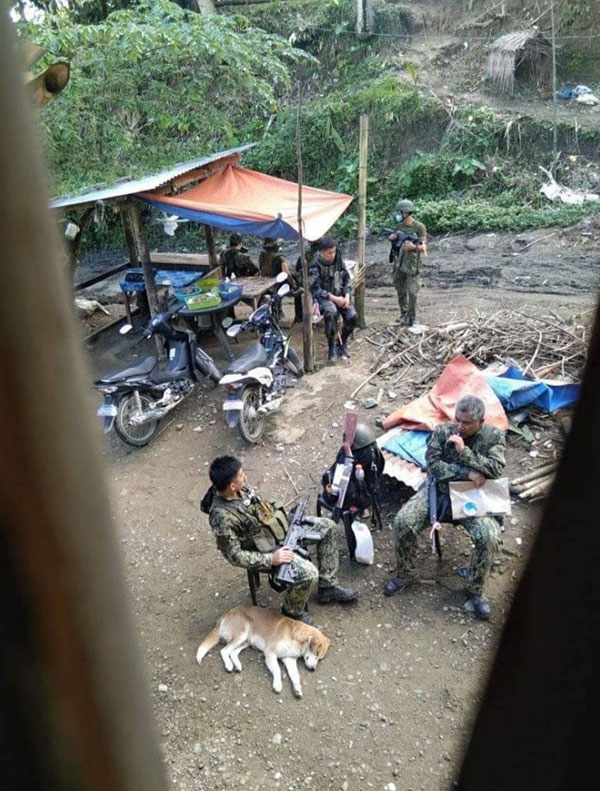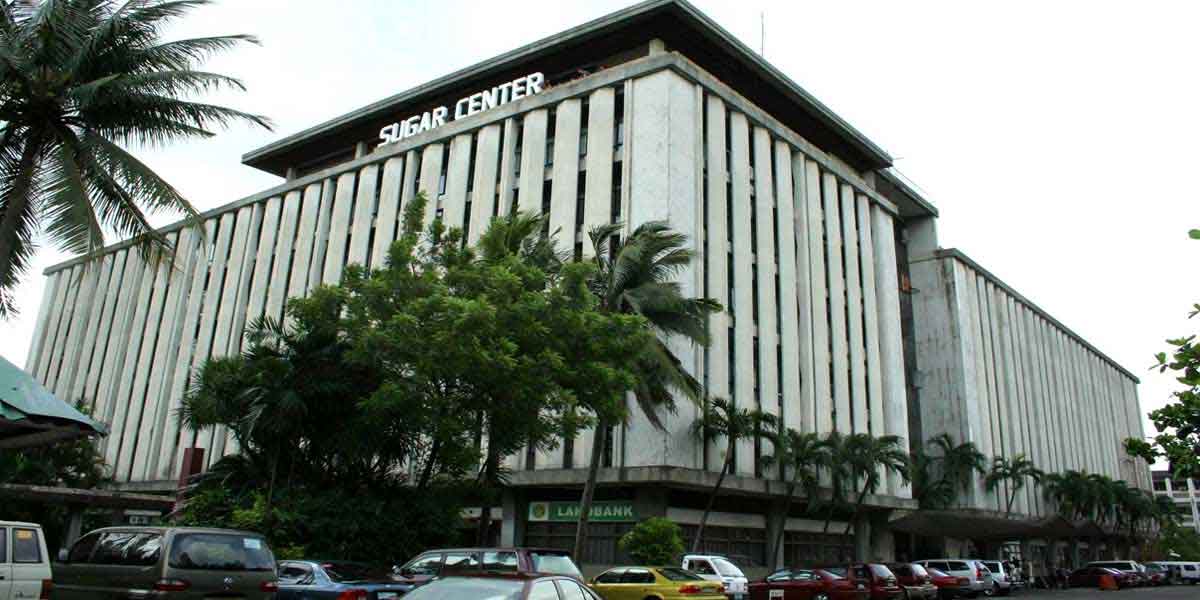
By Jennifer P. Rendon
Questions and controversies hounding the Rizal Day raids in Tapaz, Capiz are far from over.
Recently, the religious sector has also wanted answers on why the supposed implementation of search warrants led to the death of nine members of Tumandok nga Mangunguma nga Nagapangapin sang Duta kag Kabuhi (TUMANDUK), an alliance of 17 indigenous peoples’ (IP) communities in Tapaz and Jamindan towns in Capiz and Calinog in Iloilo.
This was contained in a pastoral letter of Western Visayas bishops signed January 15, 2021.
The signatories included Jaro Archbishop Jose Romeo Lazo; Most Rev. Marvin Maceda, Bishop of San Jose de Antique; Most Rev. Patricio Buzon, Bishop of Bacolod; Most. Rev. Gerardo Alminaza, Bishop of San Carlos; and Most. Rev. Louie Patalinghug Galbines, Bishop of Kabankalan, all from the Metropolitan See of Jaro.
Also affixing their signatures were Archbishop Jose Cardinal Advincula from Capiz; Most Rev. Jose Corazon Tala, Bishop of Kalibo; and Most. Rev. Narciso Abellana, Bishop of Romblon, all from the Metropolitan See of Capiz.
The signatories underscored five demands “for the plight, by our Tumandok brothers and sisters.”
First, they demanded for a thorough investigation by an independent body to ascertain what really happened last December 30, 2020.
They also wanted “that once again we – government, the church, business community – listen to the legitimate cries of the Tumandoks against the construction of the Jalaur Mega Dam.”
The PHP11.2-billion Jalaur River Multipurpose Project (JRMP) II in Calinog, Iloilo is dubbed as an “important economic game-changer” for Iloilo province. The project is the largest water reservoir to be constructed outside Luzon.
The third demand is “that the militarization of the IP communities should stop immediately so that our brothers and sisters, the Tumandoks, can go home and live in peace again.”
It also noted that the “the PNP and the AFP follow conscientiously the ethical standards in the rules of engagement in their police or military operations.”
The religious leaders also wanted “that the police officers be required to have body cameras in all police operations to protect the police against false accusations. This will also protect the civilians from the use of violence or abuse of power such as planting of evidence, illegal arrest, and even calling.”
Earlier, the Criminal Investigation and Detection Group (CIDG) asserted that the implementation of the search warrants was done above board.
CIDG, the police unit that took the lead in serving the 28 search warrants, has stood by its earlier pronouncements that all slain victims have put up a fight with the raiding teams.
But when asked how the resistance happened, Lieutenant Colonel Gervacio Balmaceda, CIDG-6 regional director, did not give details of how the resistance happened and forced police officers to use commensurate force to neutralize the subjects.
But he admitted that some members of the raiding team had taken photographs that could be used for documentation purposes.
Balmaceda admitted that the Police Regional Office 6 (PRO-6) issued a camera to be used but it was for still photography.
There was an operative in each of the nine teams that were tasked to handle the taking of photos.
But why not couple it with a video? “Dapat kasi ‘yung gamitin lang are equipment officially issued by offices. Hindi pwede ang cellphone,” Balmaceda said citing that they might be questioned during the presentation of evidence.
He did not elaborate further.
‘LIFE IS SACRED’
The pastoral letter opened with a quote from Gaudium et Spes, #1, “the joys and the hopes, the griefs and the anxieties… especially of those who are poor or in any way afflicted, these are the joys and hopes, the griefs and anxieties of the followers of Christ.
Gaudium et spes, the Pastoral Constitution on the Church in the Modern World, was one of the four constitutions resulting from the Second Vatican Council in 1964.
It was then followed by the statement, “Life is sacred!” and a verse from Exodus 20:13, “you shall not kill,” which were printed all capital letters.
The statement added: “we, the bishops of Western Visayas, share the griefs and anxieties of our brothers and sisters of the Tumandok tribe in Tapaz, Capiz. We grieve with the families of the nine Tumandok tribespeople who were killed. We share the suffering of those arrested and of their families. We empathize with the ever and insecurities of those displaced by the atrocities. And We condemn in the strongest possible term, all the killings, and especially, the killings of our brothers – the Tumandoks.”
The letter emphasized the words “Tumandok, insecurities, atrocities, killings, and brothers” in high caps.
In a press statement, the Police Regional Office 6 (PRO-6) earlier said that “the service of the search warrants became a bloody encounter when the subjects put up a fight against the operatives.”
The encounter that happened on December 30, 2020 led to the death of Roy Giganto, Reynaldo Katipunan and Mario Aguirre of Barangay Lahug; Maurito Diaz, Sr. of Barangay Tacayan; Eliseo Gayas, Jr. of Barangay Aglinab; Artilito Katipunan of Barangay Acuña; Joemar Vidal of Barangay Daan Sur; and Garson Catamin and Rolando Diaz of Barangay Nayawan.
Simultaneous raids were also done in Calinog, Iloilo but no one was killed in the town.
The pastoral letter said that “the Catechism of the Catholic Church teaches that [God alone is the Lord of life from its beginning until the end.]”
It further touched on the issue on the war of drugs citing that the “27,000 victims of the senseless war against illegal drugs, cry to God for justice.”
The letter added, “we lament the little or nothing at all has been down to do justice. Recently, from Negros Island, we are hearing the voices of the blood of those tagged as members or supporters of the Communist Party of the Philippines – New People’s Army (CPP-NPA). Now, we are hearing it from the island of Panay. Compelling a brother Bishop to say “that the killings were a continuation of the mass killings and arrests of other activists in the central Philippines in recent months.”
The bishops pointed out that those killed and arrested – 17 from both Tapaz and Calinog – were former or current village officials and TUMANDUK leaders.
They noted that the group strongly opposes the construction of the Jalaur Mega Dam.
“The leaders believe that because of their strong opposition to the project, they became victims of red-tagging, being accused as members or supporters of the CPP-NPA.”
The letter noted that the police claimed the slain subjects were “nanlaban.” They allegedly fought it out, that’s why they were killed.
But the bishops also noted the families’ counter-claim that “the victims did not resist arrest. The firearms and explosives were planted. The victims were murdered.”
It added, that “atrocities created a climate of fear and uncertainties among the residents of the Tumandok communities. Fear forces many to leave their communities and migrate to more secure places in the Poblacion or in the house of relatives. Fear also forces many to surrenders to authorities to clear their names or admit that they were former members and supporters of the CPP-NPA.”
‘BE HIGHLY VIGILANT’
After drawing out their demands, the bishops called on everyone to be highly vigilant in defending the sacredness of life and in respecting and the protecting the rights of all.
“We also encourage the Ilonggo community to reach out in compassion to our bereaved and displaced Tumandok brothers and sisters,” the pastoral letter added.
It also urged “everyone to discern and pray for the will of God amidst all the killings and violations of human rights and to act guided by the principles of nonviolent actions.”
“Lastly, let us all together contribute whatever we can to stop the killings; respect the rights of the people to live in peace; and stop the militarization of the IP communities.”
The letter is expected to be read in all masses in all Catholic Churches of Western Visayas on January 24, 2021.





















